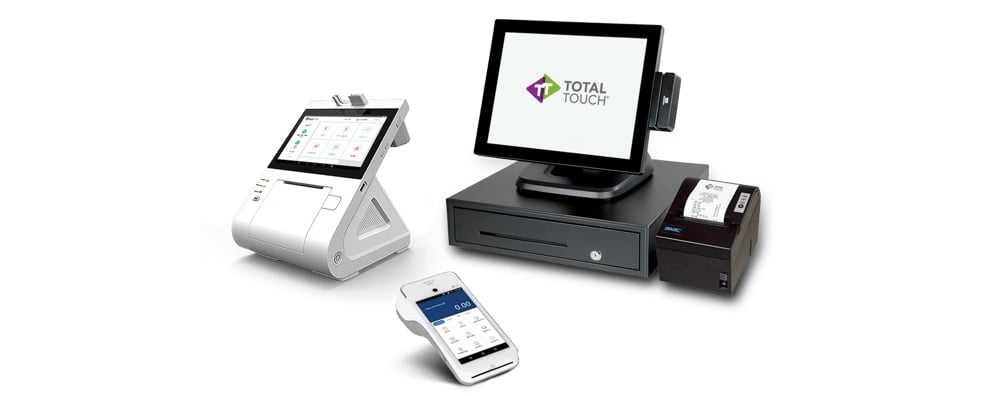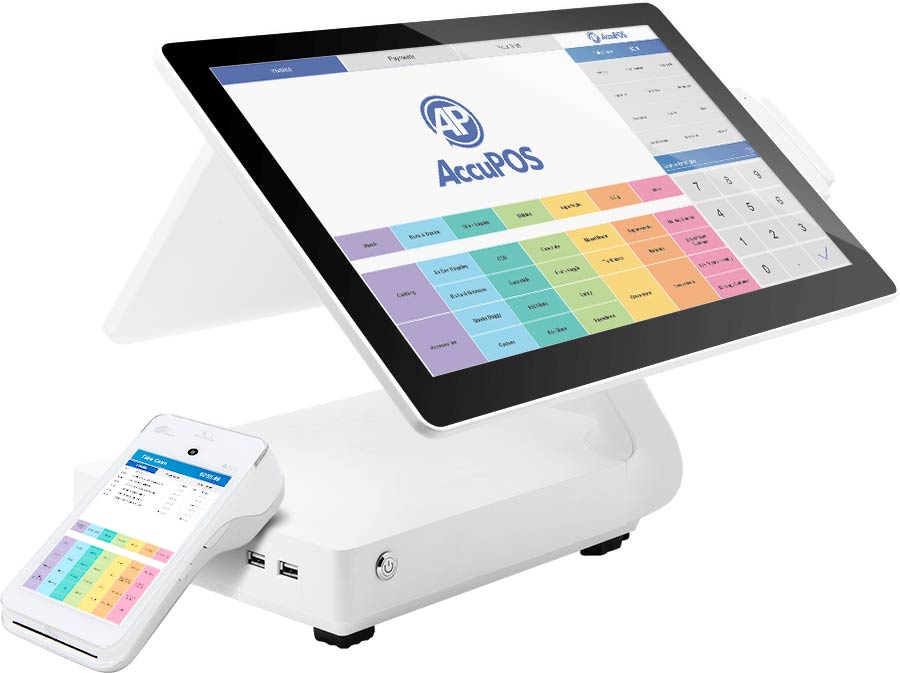The Of Pos System For Small Business
The Of Pos System For Small Business
Blog Article
8 Easy Facts About Restaurant Pos Shown

POS Systems: Retail Point-Of-Sale Solutions Streamline Deals
The Ultimate Guide To Restaurant Pos

Hardware Parts of a Point of Sale System What makes a POS system tick? It's not simply software application; the hardware plays a starring role. Consider it as the body to the software's brain. Without the ideal hardware, even the most advanced POS software application is simply a pretty face. Necessary POS Hardware So, what are the must-haves? Let's simplify. The main processing system, typically a computer or tablet, is the heart of the operation. The monitor or touchscreen show allows staff to engage with the system. A barcode scanner accelerate the checkout procedure. Remember the days of manually going into each code? The trusty receipt printer provides clients with a record of their purchase. A cash drawer keeps your money safe and organized. A card reader allows customers to pay with credit or debit cards. Diving Deeper: Beyond the Basics However wait, there's more! Depending on your organization, you might require specific hardware. A dining establishment may integrate kitchen area printers to relay orders, while a retail store might utilize label printers for product tagging. Ever question how your regional pastry shop instantly prints those delicious-looking labels? Choosing the Right Hardware: A Balancing Act Choosing the ideal hardware isn't almost purchasing the most pricey devices. It has to do with finding the sweet spot between functionality, sturdiness, and budget plan. A little service just beginning may choose get more info a more fundamental setup, while a high-volume retailer will require robust, high-performance machines. Is it better to purchase brand-new or utilized? Consider your alternatives carefully. A new system provides the most current technology and guarantee protection, but a refurbished system can save you money. The Future of POS Hardware What does the future hold? Anticipate to see a lot more integration with mobile gadgets, biometric scanners for employee authentication, and advanced analytics control panels showed on larger, clearer screens. Think of a world where inventory is immediately updated in real-time as products are scanned-- a world where you can track your best-selling product from anywhere in the world. The possibilities are endless, and the hardware is continuously developing to fulfill the demands of today's companies. Are you ready to update your point of sale system?
Software Application Features and Capabilities: The Heart of Your POS System
Ever watch a skilled barista glide through a hectic early morning rush? Their trick isn't just caffeine; it's a smooth dance with their POS system. The software is the conductor of your business symphony, orchestrating everything from sales to inventory. However what notes should you be listening for? What abilities genuinely matter in today's market?
Inventory Management: Beyond Counting Beans
Forget spreadsheets that haunt your dreams. Modern POS systems offer real-time inventory tracking, informing you when your stock of artisanal coffee beans dips precariously low. Consider it as a digital guardian angel, preventing those uncomfortable "Sorry, we're out!" moments to customers. What if you could likewise anticipate demand based upon historic data? Numerous systems now use forecasting tools, an effective weapon versus overstocking and lost sales. This helps prevent the predicament of lacking popular products or building up excess stock of slow-moving items, both of which can constrain capital and area.
Sales Reporting and Analytics: Translating the Information
Sales data is the brand-new gold, and your POS system is the miner. Forget just understanding just how much you sold today. Dive deep into the data to uncover patterns, recognize your best-selling products, and comprehend customer habits. Which menu item pairs perfectly with the everyday special? Which promotion resonated most with your clients? These insights are not simply fascinating; they're actionable intelligence. Without trustworthy sales reporting, browsing the intricacies of company decision-making becomes like cruising without a compass, increasing the opportunity of bad moves and missed chances.
Customer Relationship Management (CRM): Building Bridges, Not Walls
Keeping in mind a routine consumer's name and favorite order is charming, but scaling that individual touch is challenging. POS systems with CRM capabilities enable you to track customer purchase history, preferences, and even birthdays. Think of automatically providing a discount on their birthday-- a small gesture that promotes loyalty and motivates repeat service. There is the possible snag of poor data quality, which can lead to inaccurate customer profiles and inefficient marketing efforts.
Payment Processing: Simplifying the Transaction
The checkout experience can make or break a sale. Seamless combination with numerous payment methods-- charge card, mobile wallets, even copyright-- is non-negotiable. Can your system manage split payments? Does it provide secure tokenization to safeguard customer information? A clunky payment process is like striking a sour note in your business symphony, potentially interrupting the entire performance. Making sure compatibility with developing payment technologies and adherence to security requirements are paramount for keeping client trust and operational effectiveness.
Worker Management: Keeping the Team in Sync
From clocking in and out to handling consents and tracking efficiency, worker management includes streamline operations and enhance accountability. Is scheduling a problem? Many POS systems use incorporated scheduling tools, enhancing staffing levels based on anticipated need. A common obstacle that is frequently neglected is the obstacle of incorporating staff member management performances with payroll systems, which can cause errors and inadequacies in wage estimations.
Advanced Characteristics: Leveling Up Your Operations
- Table Management: Perfect for dining establishments, this feature permits you to picture your dining-room, track table status, and handle reservations.
- Commitment Programs: Reward your best clients and motivate repeat company with incorporated loyalty programs.
- Online Purchasing Combination: Perfectly integrate your POS system with online buying platforms to expand your reach.
Selecting the best POS system is about more than simply performance; it has to do with discovering a partner that can grow with your business. Consider your existing requirements, expect future growth, and don't be afraid to ask the tough questions. The ideal software application can change your organization from a chaotic cacophony into a harmonious masterpiece.
Industry-Specific POS System Applications
Believe of the regional bakery, bustling with morning consumers yearning fresh croissants. A generic POS system might manage transactions, however can it handle complex recipes, track component stock, or automatically change production schedules based upon sales information? Probably not. That is where the appeal of industry-specific POS systems shines.
Restaurants and Hospitality
For bustling restaurants, speed and precision are vital. How many times have you seen servers managing orders, adjustments, and splitting costs, all while attempting to provide exceptional service? A dining establishment POS system simplifies these procedures, enabling for table management, kitchen order tickets, and even online purchasing combination. These systems often consist of functions like ingredient-level stock tracking, vital for handling food expenses and lessening waste. Ever question why your preferred dish is sometimes not available? It might originate from an absence of proper stock management.
- Table Management
- Cooking Area Order Tickets
- Online Ordering Combination
- Ingredient-Level Inventory Tracking
Retail Solutions
Retail, with its diverse inventory and client interactions, demands a various set of tools. Think of a shop clothes shop struggling to track sizes, colors, and seasonal collections using a fundamental checkout system. An industry-specific retail POS system offers features like barcode scanning, consumer loyalty programs, and detailed sales reporting. These systems can even integrate with e-commerce platforms, offering a smooth omnichannel experience for clients. Did you know some retail POS systems can anticipate future sales patterns based upon historical data? Now that is effective!
The Hazards of a Mismatch
Selecting the incorrect POS system can develop significant operational hurdles. A clothing boutique using a restaurant POS, for example, would discover it unsuitable for managing inventory with sizes and colors. The absence of appropriate reporting and analytics might result in mistaken purchasing decisions and lost earnings. The result could be comparable to attempting to fit a square peg in a round hole.
Secret Considerations
Picking an industry-specific POS system needs cautious examination. Think of your business's distinct requirements and functional workflows. Does the system integrate with existing software application? Does it offer the required reporting capabilities? Is it scalable to accommodate future development? A well-chosen POS system is not simply a deal tool; it's a strategic asset that can drive effectiveness, enhance client complete satisfaction, and eventually, enhance your bottom line. Keep in mind, it is a financial investment in your service's future, not just a cost.
Security Considerations for Point of Sale Systems
Ever heard the tale of the mom-and-pop shop that lost everything due to the fact that of a single, ignored security flaw in their POS system!.?. !? It's a cautionary tale, and it highlights a crucial aspect often overshadowed by the allure of elegant functions and streamlined operations. The reality is, a POS system is just as excellent as its security. What good is a system that crunches numbers in a flash if it allows bad guys to swipe customer's data just as rapidly?
The Vulnerability Minefield
The digital landscape is a battleground. Every POS system, no matter size or sophistication, is a prospective target. Are you genuinely prepared for the dangers prowling around the corner? The real pinch comes when you find that your outdated software application has a gaping hole that hackers can exploit, turning your company into an unwitting accomplice in identity theft. The problem is that hackers are crafty and are always altering their techniques.
Common Security Spaces and Professional Tips
- Weak Passwords: "Password123" isn't sufficing. Use strong, unique passwords for all POS system accounts and change them frequently. Two-factor authentication is a must.
- Unsecured Networks: Your Wi-Fi resembles leaving the front door open. Secure your network with strong encryption (WPA3 if possible) and think about a separate network for your POS system.
- Out-of-date Software Application: Software application vendors spot security holes all the time. Stopping working to upgrade is like inviting difficulty. Set up automated updates or schedule routine maintenance.
- Worker Training: Your personnel is your first line of defense. Train them to acknowledge phishing efforts, protect passwords, and report suspicious activity.
Information Encryption: Your Shield Versus the Dark Arts
Consider data file encryption as a secret code. It scrambles delicate info, like charge card numbers, making it unreadable to unapproved users. Without encryption, your customers' financial information are like sitting ducks, ripe for the picking by cybercriminals. It's not practically safeguarding your consumers; it has to do with protecting your reputation and preventing substantial fines.
PCI Compliance: The Rulebook You Can't Ignore
If you accept charge card, you're bound by the Payment Card Market Data Security Standard (PCI DSS) It's a set of security requirements developed to protect cardholder data. Stopping working to comply can lead to fines, penalties, and even the loss of your capability to process charge card payments. It's a headache, yes, but it's an essential one. Think of PCI compliance as the expense of doing service in the digital age.
Consider this: every deal processed through your point of sale is a possible entry point for harmful actors. By implementing robust security measures, you're not just securing your service; you're securing your customers' trust and ensuring the long-term viability of your operations. The security of your POS system isn't simply a technical concern; it's an organization imperative. It needs continuous alertness, proactive steps, and a commitment to staying ahead of the curve.